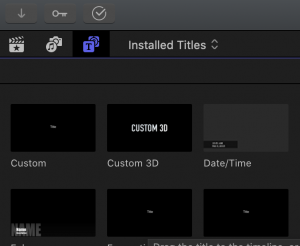Are you looking for a long-lost friend, lover or family member? If so, this article will give you all the tools you need to find them without spending a dime. All searches listed here are free and provide accurate results. Our Grey Ghost Miami private investigators have used these tools as adjuncts to our private investigator databases to locate people for many years and they don’t usually let us down. If you’re ready to be your own private investigator, let’s begin!
Step 1 – Always begin your search with good ol’ Google.
This may be obvious, but it may be so obvious that it’s sometimes overlooked. Do a basic search like this: “Person’s name, Florida”. You may be surprised with what you find. This may show active social media accounts, phone numbers and addresses.
Step 2 – Run their name through Facebook, Instagram, Twitter, LinkedIn and other free websites.
If they don’t show up on any of these social media platforms, try running the name of a friend or of a family member of theirs. Then search this person’s friend list on Facebook to see if you recognize the person you’re looking for in any of the pictures. Keep in mind that they may be using a fake name.
Other good websites that are completely free are:
www.fastpeoplesearch.com
www.truepeoplesearch.com
www.zabasearch.com
Step 3 – Check the jails and prisons.
If you’ve taken all the steps above and found no trace of the person, it would make sense that they may be incarcerated. For the prison inmate search, you can go here:
http://www.dc.state.fl.us/OffenderSearch/InmateInfoMenu.aspx.
Click on ‘Search All Corrections Offender Databases’, enter the person’s name and start searching. This particular website will show all individuals that currently are or have been in the state’s prison system. It does not show jail information. Remember, jails are operated by the counties and prisons are operated by the state. To search jails, you need to have an idea of what county the person lived in. Then you would Google ‘name of county + jail search’. This will give you a list of sites that show these records. Always choose the official county site and not these private, paid sites. For example, if a person lived in Broward County, you would go here:
https://www.sheriff.org/DOD/Pages/ArrestSearch.aspx
If they lived in Miami-Dade County, you would search here:
https://www8.miamidade.gov/Apps/mdcr/InmateSearch/#/
Step 4 – Check death records. You can look for obituaries online or you can try the site here:
https://www.deathindexes.com/florida/
You can also check this site for records, but it tends to be have older information, meaning that you might not be able to find records from the last 5 years:
https://www.ancestry.com/search/categories/bmd_death/
Step 6 – Look for the person’s relatives and call them.
If you know the relative’s names, look them up. If not, you should have been able to collect some relatives’ information through the steps listed above. If you had a good relationship with the person and you just want to reconnect, explaining your story to the person you call will most likely result in a positive response. If you don’t know the person that you are looking for (e.g. biological mother or father) or if you did not have a great relationship with them, you can try doing a ‘pretext’. A pretext is a term used by private investigators, which basically refers to using a fictitious story to obtain information. So, when you call the person’s relatives, you can say that you went to high school with them and would like to personally invite them to the reunion or something similar. They may be nice enough to give you the person’s direct phone number.
It should be noted that this step was left for last because it’s often used as a last resort. Calling someone’s friends’ or family can be somewhat intrusive and may not be well-received. Therefore, it should be mentioned, that you should only call these people once. Under no circumstances should you call anyone repeatedly. This can be construed as harassment, so please use common sense.
We hope that these tips help you find the person that you’re looking for. If you’re still stuck after following all these tips, please contact us and we will find them for you. We utilize paid databases that are only available to licensed private investigators. These databases compile data from credit bureaus, utility companies and other accurate sources of information that are not available to the general public.
Author: Ana-Maria Ionita Grey Ghost Investigations
When we compare the private investigation industry as it exists in the United Kingdom and the United States, it’s tempting to succumb to the popular and pervasive stereotypes of PIs from film and literature. Certainly, in the eyes of the British public, a Yank detective is wise-cracking, moustachioed, handsome, and also is Tom Selleck. I can only imagine that this runs both ways, and across the pond, people think I look like Sherlock Holmes, complete with the daft hat.
I think it would come as no surprise that modern detectives in the two countries are more similar than different. Still, there are some gaping ravines between our day-to-day practices that cannot be ignored. Mostly, I believe these distinctions mirror wider cultural differences, but it’s still interesting to note how this manifests in our investigative work.
Did you know, for example, that, proportionally, there are twice as many private investigators in the US as in the UK? There are 3 private investigators for every 10 000 US citizens, while there are only 3 for every 20 000 UK citizens.
There are probably hundreds of factors at play causing this discrepancy. Interestingly, it’s not the ease with which one can become a PI. As we’ll see, it’s actually easier to get into the industry in the UK.
Legislation and Regulation
The variation among state laws means that I can’t make blanket statements about the legalities of investigators in the United States. Still, there are recurring trends across the states. With the exception of just five, all US states and The District of Columbia require Private Investigators to be licensed. What you’ll need to get a license also varies, but in general, you need to be at least 21 years old, a citizen of the US, and to have a High School Diploma.
Most things here tend to be more tightly regulated than in the land of freedom, although private investigation in the UK is something of an exception. Yes, we may have strict laws, covering everything from television adverts to energy prices, but there are no legal barriers preventing someone in the UK from becoming a private investigator. Anyone can do it, regardless of educational background, criminal record, or age.
Somewhat bizarrely, you can get a license from the government, but it’s not a legal requirement. Many investigators here opt to do this as a mark of professionalism, however you will find some reputable investigators choose not to get a license.
To get the license, you’ll need to pass the very Englishly-named “Fit and Proper Persons” test. Broadly speaking, this is a background check that ensures you meet the requirements to fulfil a certain role. You also need to be over the age of 18, have the right to live and work in the UK, and pay a £220 fee.
Additionally, the license involves completing a Level 3 BTEC in Professional Investigation, which is a vocational certificate covering aspects of the work including responsible data handling, civil procedure, and investigation planning.
The courses can be quite pricey, but I think a good one would give someone a strong foundation when starting out. Not everyone who becomes a private investigator has to have years of experience in the army or government intelligence. Viewing private investigation as a legitimate career path, and not just a retirement hobby can only be a good thing, in my opinion.
Plans for Regulation
The reason why an official private investigator license is available but not enforced is that, in 2001, the government released plans to properly regulate the industry through the newly-established Security Industry Authority (SIA). Among other things, the wars in Iraq and Afghanistan and the 2008 financial crisis derailed these plans, as government attention was drawn elsewhere.
Various cutbacks that resulted from the unexpected surprises at the start of this millennium mean that the legislation for PI regulation is lying dormant. Throughout the 2000s and 2010s, a small number of murmurings could be heard among backbench officials and legislators, but ultimately nothing has come of it to date. I believe this to be yet another symptom of the British mentality. It doesn’t surprise me at all that the legislation is basically stuck in a queue.
I’m rather ambivalent about the plans for regulation. It’s not an issue that I take an official stance towards. On the one hand, I’m passionate about fostering a culture of quality investigative service. I’m licensed, and I see the benefit of licensing others. Holding prospective PIs to a basic standard of performance and testing for basic knowledge certainly could raise the average standard.
On the other hand, unscrupulous PIs who are willing to abscond with their clients’ money probably aren’t averse to falsifying licenses. The legislative proposals seem wise in theory, but I’m not sure that, practically speaking, installing more financial barriers for professional investigators will actually do the public much good anyway.
Carrying Weapons
The idea of a PI carrying a weapon would be horrifying to most people here, but it seems to be a lot more common over the Atlantic. When the legal paperwork is in order, it seems to be standard for an American PI to carry a gun.
Given the widespread availability of firearms in the US, I can see the necessity there, but it’s not a phenomenon that translates well overseas. I’d be forced to call the police if I suspected a colleague or an associate of even owning a handgun, let alone taking one out on jobs.
I’m not here to take a stance on gun control in the US. Frankly, I don’t know enough to have a real opinion. I just thought it was an interesting quirk of US investigations that obviously stems from a big cultural difference between the two nations.
Ultimately bar the regulatory limits, which may well be subject to change, PIs in both countries are more or less the same. We’re all bound by the same laws as ordinary members of the public, and we have no extra legal powers. Differences like the carrying of weapons are fundamentally caused by legal disparity.
I’d love to be able to paint the investigative industry in my country as fascinating and exotic, but like most things in our work, the truth just isn’t that exciting. We don’t wear deer-stalking caps, and we don’t have a direct phone line to The Queen. In the words of Maya Angelou, “we are more alike, my friends, than we are unalike.”
Written by John Eastham Private Investigator United Kingdom
Coming to an inbox near you: Companies claiming to offer online CCW certifications. Is it legit? Not in California!
With gun sales and Concealed Carry permit applicants surging across California – and the nation – it’s no surprise that predators using deceptive sales practices or outright scams are clamoring to prey upon the uninformed. Gun laws vary by state, meaning that what is legal in one may not fly in another. By staying vigilant about local regulations, you can protect yourself from falling victim.
A local LA County resident, who wishes to remain anonymous, contacted Paramount Investigative Services after opening an email that sounded too good to be true. He  saw an ad for a CCW course, offered completely online. With the backlog of applicants resulting in waitlists at local firearms stores for CCW courses, the email made big promises about an online CCW course offering. With everything else moving to an online format recently in the face of the Coronavirus pandemic, he thought it might be possible that the course was legit.
saw an ad for a CCW course, offered completely online. With the backlog of applicants resulting in waitlists at local firearms stores for CCW courses, the email made big promises about an online CCW course offering. With everything else moving to an online format recently in the face of the Coronavirus pandemic, he thought it might be possible that the course was legit.
It turns out that the email was deceptive and predatory – but not exactly a scam. Ken Childs, Lead Investigator for Paramount Investigative Services Inc. did some digging and discovered a slew of similar services and emails going out to LA County residents. He found that many companies are using purchased email spam lists to market their certifications to consumers – without regard to the local laws of their home state. The most “legitimate” of these deceptively market a certification path created available through the state of Virginia. A Virginia law allows for issuance of a Concealed Carry permit for an out-of-state resident, which can be obtained entirely online. This is legal in Virginia, but not everywhere else.
In California for example, no out-of-state permits or licenses for firearm carrying of any type are honored. The state also does not issue permits or licenses to out-of-state residents.
There are some states that will honor the Virginia certification however, but only 29 of them.
Taking a closer look at one such website, CertifiedCCW.com, it’s easy to see where the deceptive sales practices begin:
“To ensure that you can exercise your constitutional right to bear arms, we’ve created this certified gun safety course that you can take from the comfort of your own home,” the website touts. “The State of Virginia issues concealed carry permits to residents and non-residents of ALL 50 states.”
The site tip toes around the fact that this certification – legal in Virginia – is not honored in California, though emailed indiscriminately to California residents. The website includes a disclaimer that refunds are only issued if Virginia denies your application for a permit. There will be no refunds considered for those who mistakenly believe the course will be honored in their state.
The best way to ensure any out-of-state licenses are honored in your state of residence is to look up your local laws on a government website.
California residents should refer to the state’s Bureau of Firearms, at https://oag.ca.gov/firearms
How to add your date & time stamp in your video with Final Cup Pro X.
Or
FCPX Like a boss! (A Private Investigator Boss!)
So every few months things change on you from your software or your devices like your camcorder etc. and now you’re having difficulties with adding your date & time stamp. Or you simply want to catch up with the times! I strongly recommend Final Cut Pro X if your semi tech savvy. This software took my video to the next level. There are a few caveats; the software is only good for Mac, the processing time is going to rely on your machine’s ability to crunch video etc.
So with that being said, let’s get started. Download and open final cut pro. Then start a new library. Second, you should start and a new project. I usually use a claim number, file number or my subjects last name for ease of use. Now you’re ready to begin.
Click the image to watch our video:
Take you camera or SD card and drag the video to your external hard drive. Once transferred, remove your device/SD card. At this stage, I would recommend deleting all of your downloads, cache out of your library, and empty out your trash. This will free up space on your machine. This is vital when exporting. If you have a lot of video and you know your machine doesn’t have much hard drive space, I would work in batches. (and again, delete FCPX library backups, cache & trash for space. It is a few extra steps but the last thing you want is your video freezing up because you don’t have enough disk space.)
Now, select and drag your video into the lower time line. The video will drop and in numerical order. Let’s select all {Command + A} and then head to the top left and find “clip” and in that drop down, select “detach audio.” You will see your Audio will detach from the video into a new green field in the time line. Select all audio files and hit the delete button. No more audio flubs or worries! Lord only knows what you’ve said while you were twisted like a pretzel and trying to shoot video!
Now that the audio is out of the way, I suggest a quick glance over your video and if you have some unnecessary long clips without the subject or maybe some unnecessary time shots, I’d recommend cutting the few clips or cut longer ones down.
Finally we can work on the date & time!
Go to your TITLES! (upper left of the FCP window) Select the “T”  Once the titles pop out, locate the “Date/time” title. You can simply select it and drag it just above the video clips. Sadly, you have to adjust it to fit the length of the video clip. And you’ll need to do this to every video clip. However to save you some time, you can use “hot Keys” to copy & past the Date/Time over the video clips. (Command & C and to paste, you use Command & V).
Once the titles pop out, locate the “Date/time” title. You can simply select it and drag it just above the video clips. Sadly, you have to adjust it to fit the length of the video clip. And you’ll need to do this to every video clip. However to save you some time, you can use “hot Keys” to copy & past the Date/Time over the video clips. (Command & C and to paste, you use Command & V).
If you know your video is going to court I would stop here, review the video and if all is well, export it. (Upper right corner; small box with an arrow)
KISS method folks! Nothing fancy or applicants attorney will make it look like you’re a video production expert and that you’ve “edited the video.
Stay away from the word “edit.” You only imported the video, used the software for the date & time stamp. If you had to cut the video I would keep two versions; long & short. When in court you can say you’ve cut the video down to save the court “your honor’s time” and you have the full version for everyone if need be.
I hope this helps and Happy Hunting.
Admin
If you have any suggestions on how we can improve FYI or for our next article. Please email us at admin@findyourinvestigator.com.
3 Top tips for surveillance in the snow

1. Know the area and the weather report. Let’s say you have a surveillance case in the mountains. What I would do first, is look to see if there are any winter storm warnings for the area. If so, how much snow is expected to accumulate? In the Rocky Mountains in Colorado, we can get 2-3 feet of snow overnight. Can the vehicle you are using operate under these conditions? You should already have snow tires, but do you have chains? Is your vehicle in good condition to where you are confident it won’t break down? Having a vehicle break down in normal weather conditions is fine, but in a snowstorm in the mountains this could be dangerous.
Even if there is no chance of snow, you need to be prepared. I have a bag that has emergency supplies just in case I am stuck in the mountains in the event of a road closure or other unforeseen event. The bag should contain a heating supply, a sleeping bag, food, propane heater for heating water and food, and extra warm clothes.
If your windows keep fogging up, make sure the heated air in your vehicle is not being recirculated. Also, make sure your windows are clean before conducting surveillance. Your windows will fog easier if they are not clean. If all else fails, use a shirt or towel to wipe the moisture off the window.
2. Be prepared to get out of your vehicle and move on foot. Maybe the subject you are surveilling decides to walk somewhere or camp somewhere. If this is the case, are you going to be prepared to be in subzero weather for multiple hours? Understand that if you are in the mountains and get hypothermia, hospitals are a long distance away and it will be difficult for you to get help quickly. You need to prepare yourself, so you don’t end up in a situation like this.
3. Someone always needs to know where you will be and you need to have a way to contact them. If you get stuck somewhere and need help, someone needs to be standing by to come get you. Sometimes in the mountains you do not have cell service. So what are you going to do if you’re in the middle of nowhere, have your vehicle breakdown, and the weather is -20 degrees? You cannot walk to get help and you can’t call anyone because you don’t have service. I would recommend in a situation like this, renting a satellite phone. This could save your life.
How Do I find my birth Parents?
What is Genealogy investigations and how can it help?


